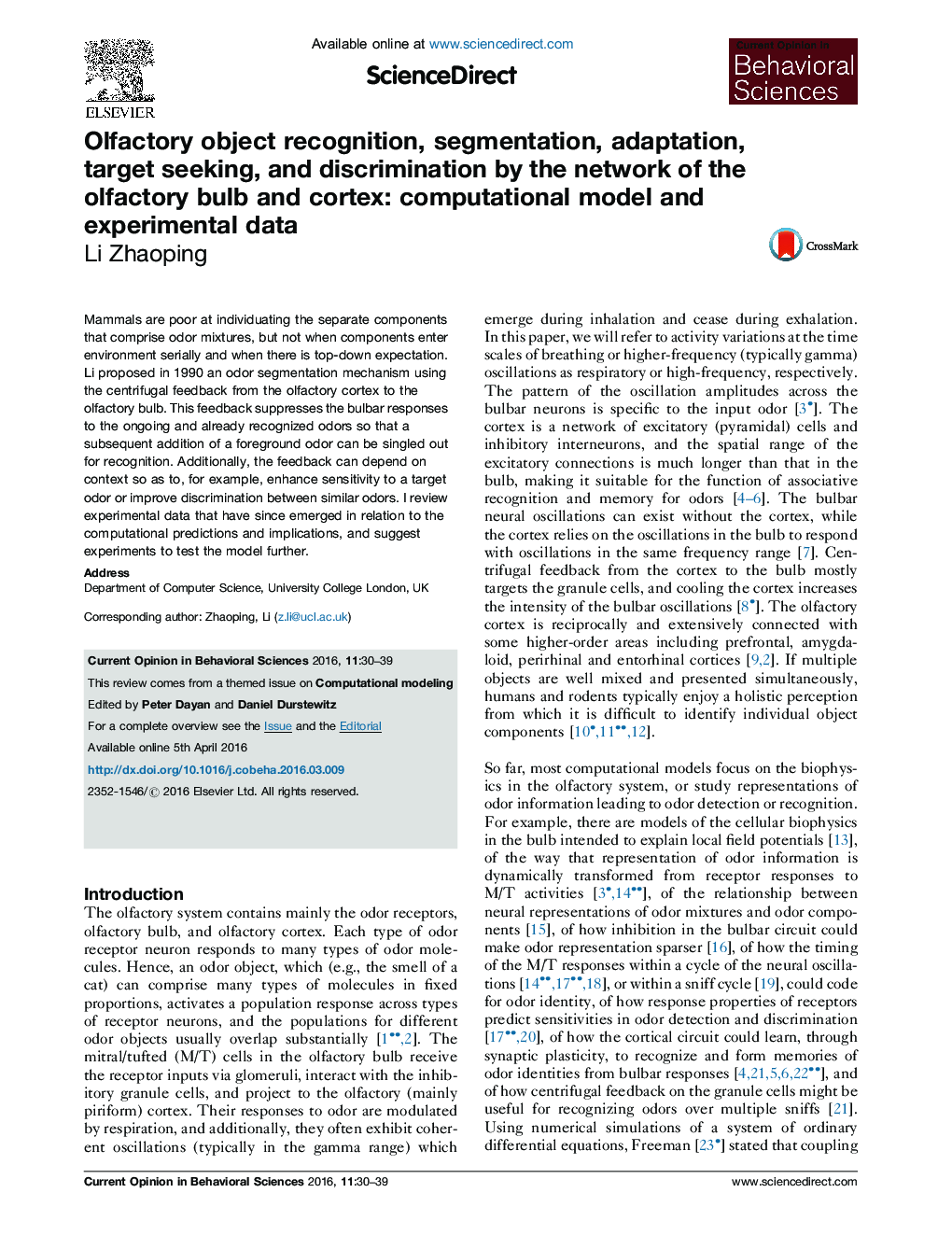| Article ID | Journal | Published Year | Pages | File Type |
|---|---|---|---|---|
| 6260440 | Current Opinion in Behavioral Sciences | 2016 | 10 Pages |
â¢A proposal about the role of feedback from the olfactory cortex to the bulb.â¢Feedback aids adaptation to background odors so a foreground odor can be segmented.â¢Feedback could also serve to enhance sensitivity to target odors.â¢Feedback could be context-dependent, and should be odor-specific.â¢Neural and behavioral data in human and rodents are consistent with model predictions.
Mammals are poor at individuating the separate components that comprise odor mixtures, but not when components enter environment serially and when there is top-down expectation. Li proposed in 1990 an odor segmentation mechanism using the centrifugal feedback from the olfactory cortex to the olfactory bulb. This feedback suppresses the bulbar responses to the ongoing and already recognized odors so that a subsequent addition of a foreground odor can be singled out for recognition. Additionally, the feedback can depend on context so as to, for example, enhance sensitivity to a target odor or improve discrimination between similar odors. I review experimental data that have since emerged in relation to the computational predictions and implications, and suggest experiments to test the model further.
